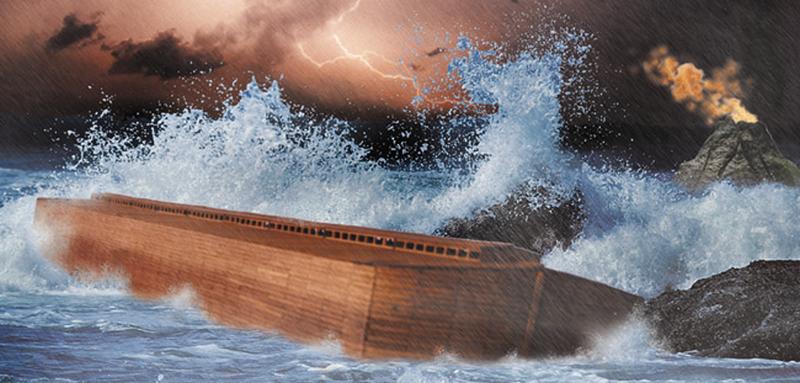Feedback archive → Feedback 2013
Noah did not take fish on the Ark!

There are many basic misconceptions about the animals Noah took on the Ark. The ideas that there were fish on the Ark and that dinosaurs would have been too big for the Ark are two of the most persistent misconceptions. In today’s feedback Dr Jonathan Sarfati sets these and other misconceptions straight.
Don P. from the United States writes:
In the article “How did dinosaurs grow so big? And how did Noah fit them on the Ark?” by Jonathan Sarfati, it is stated that “Noah didn’t have to round up anything, because God sent the animals to him.”
While that may be true, it cannot account for all the animal species (or “kinds” if you prefer) of every type in existence on the planet or in the air and in the seas. Neither can the concept of a dinosaur egg account for the indigenous habits of every mammal, animal, bird, plant, microbe, etc. by a ratio of seven pair of “clean” (14) plus two pair of “unclean” (4) from all that existed on the planet.
Suspension of belief in the all the representatives of the oceans, lakes, and streams overcoming their sensitivities to normally lethal changes to environmental conditions to swim up the ancient Euphrates to the docks nearest the Ark is incredibly complex.
How did the many sessile species, from sponges and corals to anemones and barnacles, detach themselves and waddle through however brief a trip it may have been? A problem analogous to that of terrestrial arctic and desert dwellers would be the exotic inhabitants of the abyssal and hadal zones of the ocean depths.
To postulate only shallow seas before the deluge precludes the very existence of deep-sea dwellers. So too with the dinosaurs. To postulate 55 created kinds with lots of varieties within these kinds cannot account for their growth size nor the population sizes of such a vast number of species (kinds) within such a short period of time. Even if micro-evolution is conceded, it will not answer the “shallow seas” argument.
The assumption regarding what went into Noah’s Ark and what did not is couched in covenantal terms, (clean versus unclean) not scientific terms (kinds versus species). So any position on dinosaurs and the flood of Noah’s day is pure speculation at best. And I say that as one who believes firmly in God.
CMI’s Dr Jonathan Sarfati responds:
Dear Mr P.
Thanks for writing about my article.
All the same, you would do well to find out what we actually teach about the Ark cargo. The article in question was about dinosaurs; it was unreasonable to expect us to cover everything else about the Ark. But only land vertebrates needed to be rescued from the Flood, as we point out in our core resource, Creation Answers Book: Chapter 13: How did the animals fit on Noah’s Ark?
Also, where on earth do you get the idea of “dinosaur eggs”? The whole point of the article was to show that dinosaurs could have been taken a year before they began their growth spurt. Further, further information came to light after I wrote that article which reinforces my points. That is, many dinosaur genera are really juveniles of other known genera Dino ‘puberty blues’ for paleontologists. See also Trilobites on the Ark? that refutes misrepresentations by a long-ager about the Ark passengers among many others.
Who said anything about the seas all being shallow? Seems like you have invented your own straw men to knock down. Another one was ‘micro-evolution’. Another straw man is presupposing that the Ark was in the land we now call the Middle East, overlooking the drastic continental reshaping in the Flood.
OK, you believe firmly in God, but compare James 2:19. We are not about any vague god, but the Triune God of the Bible. And note that Jesus, the Second Person of the Trinity, affirmed a ‘young’ earth and the global Flood.
Re “speculation”: the point is the “ministerial” use of science to build models based on the clear biblical teaching of a global Flood and Ark which rescued all the kinds of land vertebrates. The “magisterial” use of science imposes ideas like uniformitarianism and evolutionism upon the Scripture to undermine its clear teaching. See Flood models and biblical realism for more information.
Regards
Jonathan Sarfati
Re-featured on homepage: 23 July 2016













Readers’ comments
Comments are automatically closed 14 days after publication.